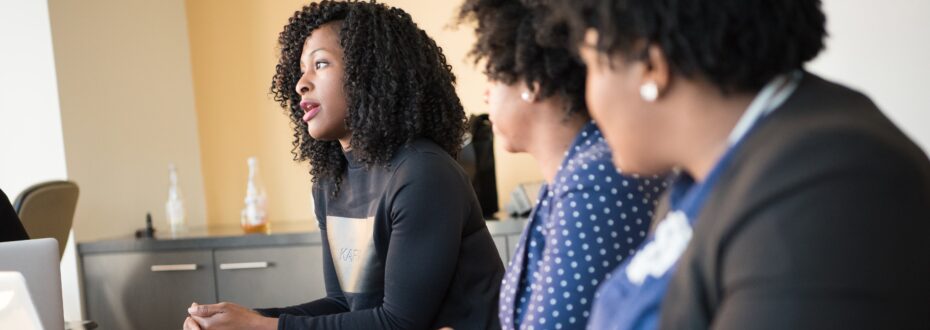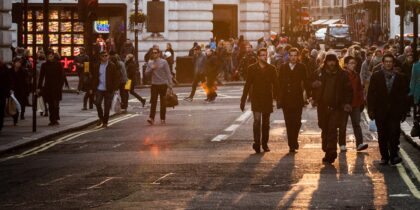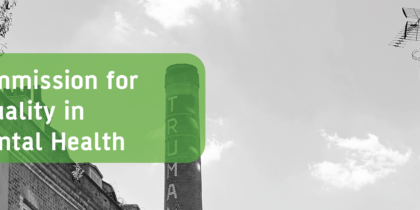I was lucky enough to be involved in fieldwork in Manchester as part of the Commission for Equality in Mental Health. We set out to hear first-hand what can promote good mental health for different communities across Greater Manchester.
Along the way we met inspirational people who are supporting the wellbeing of their communities in different ways: setting up faith groups, delivering peer support, creating safe spaces, or and meeting basic needs. We also heard about the weathering impact of financial worries, uncertainties over the right to help, and challenges accessing health and welfare support.
Some clear themes emerged.
“Nobody can counsel you if you have no home”
The most basic offer – shelter, a hot meal, clothing – is a prerequisite for improving mental health. Without these, attempts to deal with trauma, distress, or disadvantage will not take root. Some groups appeared to feel this particularly keenly: for example, asylum seekers and refugees who are not permitted to work, or those who are not well enough to find stable employment and be financially independent.
We were introduced to organisations which take a holistic approach, combining therapy and wellbeing programmes with practical support like English language classes, access to donated second-hand ovens or other utilities, and advice and advocacy around finances, nutrition, and welfare rights.
“Nobody should be deemed ‘hard to reach’”
Public services feel distant for many. For some, a lack of trust in institutions – fear that admitting illness might result in a loss of rights or choice – can get in the way. Others have been turned away for not meeting a threshold for severity of need, or find it hard to convey what they are experiencing to medical professionals. People told us about difficulties navigating complex health services and pathways, especially when feeling overwhelmed or where they face English language and literacy barriers.
There are organisations and groups who keep the door open to everyone. No thresholds, no limits. Being located within communities, they find it easier to reach out by word of mouth or simply by being present in neighbourhoods. They are well placed to address wellbeing issues before they lead to something more severe. But more than that: they are able to bridge the gap between communities and health services, providing interpretation, advocacy and comfort to people while helping health professionals ask the right questions and appreciate the preferences that might come with different faiths, ethnicities and cultures.
“I can find my people.” “I can take my armour off.”
There was little doubt that services run by people from the same ethnic, religious or social background made a huge difference for people who might otherwise get no support. Non-judgemental support from peers who share similar life experiences can give people the confidence that they will be listened to, understood, and treated according to their preferences.
We heard about groups which created safe spaces both for women and for men, for people from South Asian backgrounds, for young mothers, for the African community, and for LGBTQ groups – including those run by and for people who share multiple layers of identify, e.g. people of colour who are gay.
Alongside mutual understanding, simply being able to make connections was important for many of our participants. Local groups bring people together for positive, social purposes and offer a platform for people to find others who understand them. They create opportunities to develop new friendships and new skills, as well as to feel less isolated. And they enable many people with lived experience of mental health problems to give back by volunteering or becoming peer facilitators and mentors.
The role of community and voluntary groups in addressing mental health inequalities
Our findings from Manchester are very much in line with existing research and ideas which we are capturing through the Commission for Equality in Mental Health. For me, it also surfaced vibrant examples, already well known in their communities, of these principles in action.
Grassroots and community initiatives cannot replace the services provided in GP surgeries or in secondary mental health care. They are, however, a critical counterpart that can bridge the gap between the most marginalised communities and a health system which is often experienced as hard to reach.
There are over 15,000 voluntary sector organisations operating in Greater Manchester, of which three quarters have an income of under £10,000 per year. Despite the meaningful difference they can make, grassroots organisations across the country face dwindling opportunities to work in partnership with local public agencies and achieve sustainable funding. Through the Commission we are sharing examples of where community-led action makes the biggest impact in addressing inequality. It is vital they are not forgotten when decisions about resources are being made by the NHS, local government or nationally.





